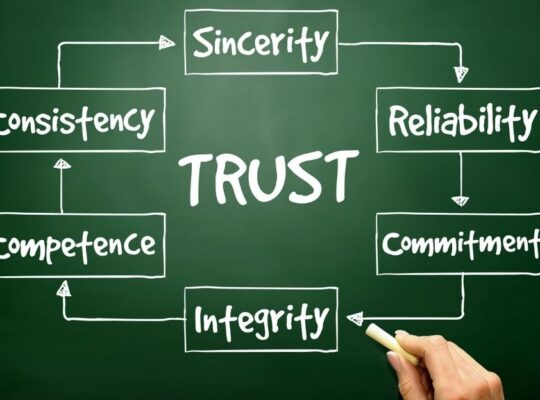Strategic Planning
Most people lack a compelling vision. They do not have that certain something that makes them look forward to tomorrow, or get excited about starting a new day. Yet without that vision, they have nothing to look forward to, no incentive to grow, or any motivation to achieve. They start questioning their purpose in life and doubting the value of their work.
This happens to the best of us, young, old, poor, rich, famous, unknown. We head off into the unknown without having certain guidelines to follow. Having a plan, or a clear and straightforward outline, for your life puts things in perspective and gives you clarity. It also gives you the confidence you need to live a happier, more fulfilled, and balanced life.
Struggling to keep a balance in your life is becoming something each and every one of us can relate to. Even those who are still in high school know what it is like to be torn between work, studying, family and friends. The stress of trying to keep it together is preventing us from living our lives to the fullest.
Whether it is stressing out over career, relationships, business, health, family, finances, friends – you name it, it is imperative that you draw up a system or plan to follow so you do not lose focus on what is important in life.
Having a system helps you manage each part of your life efficiently so you can put all your energy towards making constant progress in all aspects of your life and eventually be get to where you want to be.
Regrettably, there never seems to be a suitable time to sit and actively think of what some of your goals might be. We are always busy, we get distracted easily with everything, and at the same time with nothing. This is when being able to plan your goals in a systematic way (otherwise known as strategic planning) becomes an asset.
When you use strategic planning constructively, you can turn it into a tool that is capable of transporting you from where you currently are in your life to where you want to be in the future, even if the future you are consciously envisioning is only 3 weeks from now. On the whole, the main objective of strategic planning is to empower you to draw on your strengths and resources effectively.
For someone who has never tried strategic planning before, it may seem tricky and difficult, and it very well might be in the beginning, the good news is that it is a learnable trait.
Anyone can learn and master to set goals and successfully formulate a plan to achieve them. With a little practice, thinking and acting tactically and with a purpose will soon become second nature.
Know Thyself
Knowing why you’re doing what you’re doing is the driving force behind achieving your goals as well as the ultimate vision you have for your life.
If you know the “why” then the “how” becomes that much clearer and, after that, the sky is limit. You become less stressed and more focused.
Furthermore, you find that you have more in control of the things going on in your life. Before making a list of “why” and “how,” you first need to know who you are. Your identity is what defines you, and, ultimately, your goals. It is what makes you who you are and what you stand for.
This is exactly what Lao Tzu meant when he said…
“He who knows others is wise; he who knows himself is enlightened”
Yet, it is inevitable that when we truly know who we are, we must struggle with touchy topics and be able to open up to unpleasant bits and pieces of ourselves. It is a necessary part of the process of gaining personal intelligence by collecting information, assimilate it then be strong enough to reconcile the painful or sensitive of your past with who you are now so that you end up a stronger, sturdier, more balanced human being.
Until you are at peace with your thoughts, beliefs and emotions, you will never be content with what you have and who you truly are.
Learning Who You Are
So in order to draw up a plan for your life and live by it successfully, you need to discover who you are and start living accordingly.
You might also find that some aspects of your identity are standing in the way of achieving your dreams. That would be the best time to develop and improve on these aspects in order to become the kind of person capable of turning your dreams into a reality.
There could also be parts of your personality, which you might need to improve on so that you can grow as a person and be able to live by the blueprint of your life. It is your personality, in fact, that is the sum of all your mental processes, including your thoughts, beliefs and emotions.
Categories Of Life
In life, there are typically eight categories in life for the most of us. These areas can be customized according to your preferences. Undoubtedly, this list might vary from one person to the next since some areas will take precedence over others.
Here are some of the basic sections our lives are divided into:
- Career/Business
- Family
- Health & Fitness
- Finances
- Friends
- Relationships
- Emotions
- Spiritual
Now that we know what those 8 main areas of life are, the next step is to make them more exciting and compelling to you.
- Even by changing their names, you get exciting categories of your life on which you want to focus more.
- Moreover, you can set goals for each area. These goals can be set up on a monthly or weekly, or even daily, basis; whatever fits best with your lifestyle.
- Check up on your list of goals on a daily basis to review anything that needs updating.
- Goals are flexible so they will need to be modified to reflect changes in your life.
Why Setting Goals Is Important
Everyone needs order in their lives. It makes us the thinking beings we are and distinguishes us from the rest of the animal kingdom.
Babies set their sights on learning how to crawl, then walk, then run. The same methodology is followed by multi-billion dollar CEOs, freelancers, parents, students, and everyone in between. Each one has set a goal for themselves.
Setting and going after goals helps guide us in life, the process is a way of clarifying who we are and what heights we want to reach.
The difference between those who succeed and those who keep stumbling along the way is that they did not consciously clarify what goals they intend to pursue and what goals are simply a waste of their time.
They let distractions lead them off course from their original life plan.
Nido Qubein said, “Nothing can add more power to your life than concentrating all your energies on a limited set of targets.”
By setting clear-cut and well-defined goals, you will be helping yourself organize your time and assets. You will start to take pride in your work and yourself. You will also start seeing a purpose to what you are doing on a daily basis.
That is when, suddenly, like a bolt of lightning, things will start to make more sense. Instead of having to wake up each day to a futile routine, you start seeing things fall into place. You start realizing that you are capable of achieving things far beyond your imagination, which will motivate you to accomplish even more.
The exciting part is that goals are not a one-time thing; they are part of a lifelong process of reviewing amending and adjusting your goals. There will be unforeseen issues and changes throughout your life. Therefore, you must go with the tide and establish new goals to replace old ones, or ones that have become unimportant.
Goal Setting Self-Test
Here are some questions to ask yourself to help you decide on your goals:
- Who do I ultimately want to be in this life?
- If there were no restrictions, who would I be?
- What standards do I hold myself to?
- What are the various areas of my life that I need to focus on for constant progress?
- What central idea do I want my life to focus on? Why?
- How will this idea empower me and inspire those around me?
- How can I make it happen? What are the exact steps to get there?
- What will be the outcome of not achieving it?
6 Steps To Setting Goals
Making a plan is a deliberate action effort, this has to be done thoroughly and with great care. It is better that you sit somewhere quiet where you can really focus on what is important to you.
- Identify Your Goals – The first thing you need to consciously be aware of is what it is exactly that you need to achieve, this means writing down your goals. Write down specific, clear goals that motivate you. The important factor is that you should not think too far ahead. Start with something you would like to do over the next 3 months. Make a list of all the things that excite you, make you happy, and fill you with purpose. That should be your point of departure, and then continue exploring different things in different aspects of your life. Soon you will find that life has clarity, purpose and is actually quiet enjoyable.
- Outline The Steps – Then write down the steps you need to take to achieve each one of these goals. Setting a goal is crucial, but actually getting to that goal is even more important. One of the most effective ways to help you achieve your goals is by visualizing a step-by-step guide that will help you reach your goal. After visualizing every detailed step, write them down, simply and clearly. This helps solidify the concept in your mind and makes your goals a real thing that you have to strive for.
- Commit Yourself – The third step is to commit yourself to it. This may be difficult for some, but it is important to actually make a contract with yourself, putting it in writing can be a very effective action step.
- Break Them Down – If your goals can be accomplished in 3 months, then break them down into weekly steps to stay focused and to put all your energy into achieving them or it, as well as minimize distractions. Breaking down large long-term goals into smaller short-term goals that are easier to deal with makes it easier to focus all your energy on that one small goal that leads to the next, and so on. For example, if you’re long-term goals is to lose 50 pounds, the short-term goals will be to lose 10 pounds a month or 2 pounds a week, etc.
- Enjoy The Satisfaction – Remember, it is a process that requires hard work and diligence. After each small goal has been completed, make sure to take the time to enjoy the satisfaction of accomplishing each goal. It will keep you motivated and excited to move on to the next goal.
- Stay Flexible – If, at any time, a certain goal ceases to be compelling and captivating, or you can see that it is no feasible, consider letting it go. If it is making you feel frustrated and unmotivated, take the time to sit down and think of the reasons why this particular goal is making you feel indifferent. Additionally, you will need to modify and adjust your goals regularly to reflect the growth of your life experiences. Keep in mind that flexibility is key, because on the road of life you have to learn to change lanes.
Once you have your comprehensive plan, now it becomes time to follow through. As you work through each step, even the small ones that you might think are insignificant or trivial, cross it out on your piece of paper.
Writing things down on paper makes the goals seem more tangible and crossing them out gives you an incredible sense of accomplishment and fulfillment so that you stay motivated to move on to the next step, and so forth.
The trick is to think big, then work your way backwards until you reach the smallest goal you can set for yourself; be it a weekly or a daily goal. Remember, no goal is too small or irrelevant. Each one is a stepping-stone to lead on to the next one, then the next, and so on.
SMART
One way to ensure your goals stay on track yet are able to be modified and updated is to use the SMART memory aid system.
SMART is an acronym can stand for several things, but here are the most common:
S – Specific
M – Meaningful
A – Attainable
R – Relevant
T – Trackable
Tips For Setting Attainable Goals
Here are a few tips to help you set real, attainable goals:
Be positive – Society has dutifully taught us to be our own harshest critic. We criticize and complain; we find fault with ourselves and find fault with everything we do. This negative light has to stop if we want to find any balance or happiness in our lives. We have to change the way we think about ourselves. We have to replace criticisms with praises, and pessimism with confidence. We need to affirm and really believe, that “yes we can” do it, whatever the it might be. When you do not believe in yourself, it makes it much more difficult to achieve any goals you set.
Write it down – Putting down things on paper is something many of us no longer do, as everything is written and stored away on the computer or cloud. However, the forgotten art of writing is actually therapeutic. Writing helps, you turn an abstract idea that is floating aimlessly in your head into a tangible concept of which you feel pride when accomplished.
Be specific – When you set goals, write each one in full detail, along with times and dates so you can keep track of how much you have accomplished. It will give you a sense of satisfaction that all your hard work is paying off.
Set priorities – If you have given yourself more than one goal, number each one according to their importance. This avoids feeling overwhelmed, and helps you focus only on the most important one.
Be realistic and own your needs and desires – Take your time when figuring out what you want to achieve in life. Make sure you write down what you want, and not what your parents, or boss, expect of you, or what society, and the media, keeps bombarding you with.
In order to do this, you really have to be aware of who you really are, and what your beliefs and passions are. This may likely be the most important step and you are creating your own goals roadmap.
How Much Control Do You Really Have Over Your Life?
Being in charge of what happens in your life may sound daunting, but it is actually simpler than you might think. Yes, of course, there are many things we have no control over, but we can take charge of our needs and desires and take the steps to achieve them.
Some of us already know what our goals are, but are too scared to pursue them, or we keep pushing them back further and further in the back of our minds.
Having control over your life means, in a nutshell, that you are able to put your time to good use.
Time is your most valuable asset. It is, without a doubt, the most precious thing you possess. It is a fragile entity yet we waste so much of it.
Time is a property that is not reusable, nor can it be stored, set aside, accumulated or interchanged. The only thing you are able to do with time is to reallocate it from one activity to another. Make sure this interchange works out in your favor.
Then there are those who have yet to figure out what goals they would like to accomplish. For them, all they need is a little contemplation and some soul-searching to find out, first, who they are, then what they want to achieve.
Knowing what is important and how you will spend the time you have in your life is key.
Final Thoughts
Defining your role in society is critical if you want to design your lifestyle in a manageable, more fulfilling way. After that, your role, or roles if you have several, must be tied down to a purpose.
For example, if you are a daughter, your purpose is to nurture your parents in their old age. If you are a mother, it means you are a role model, disciplinarian, educator, and supporter of your children, among others.
You should look at your role and give it a purpose. Only then will life start making sense. Based on these roles and their purpose, you will start making decisions that empower and enrich you rather than deplete you and leave you in a dull, senseless grind.
In order to serve ourselves effectively, we need to link our purpose in life with goals, both short-term and long-term. Only then can we focus on ourselves and our progress as human beings.







